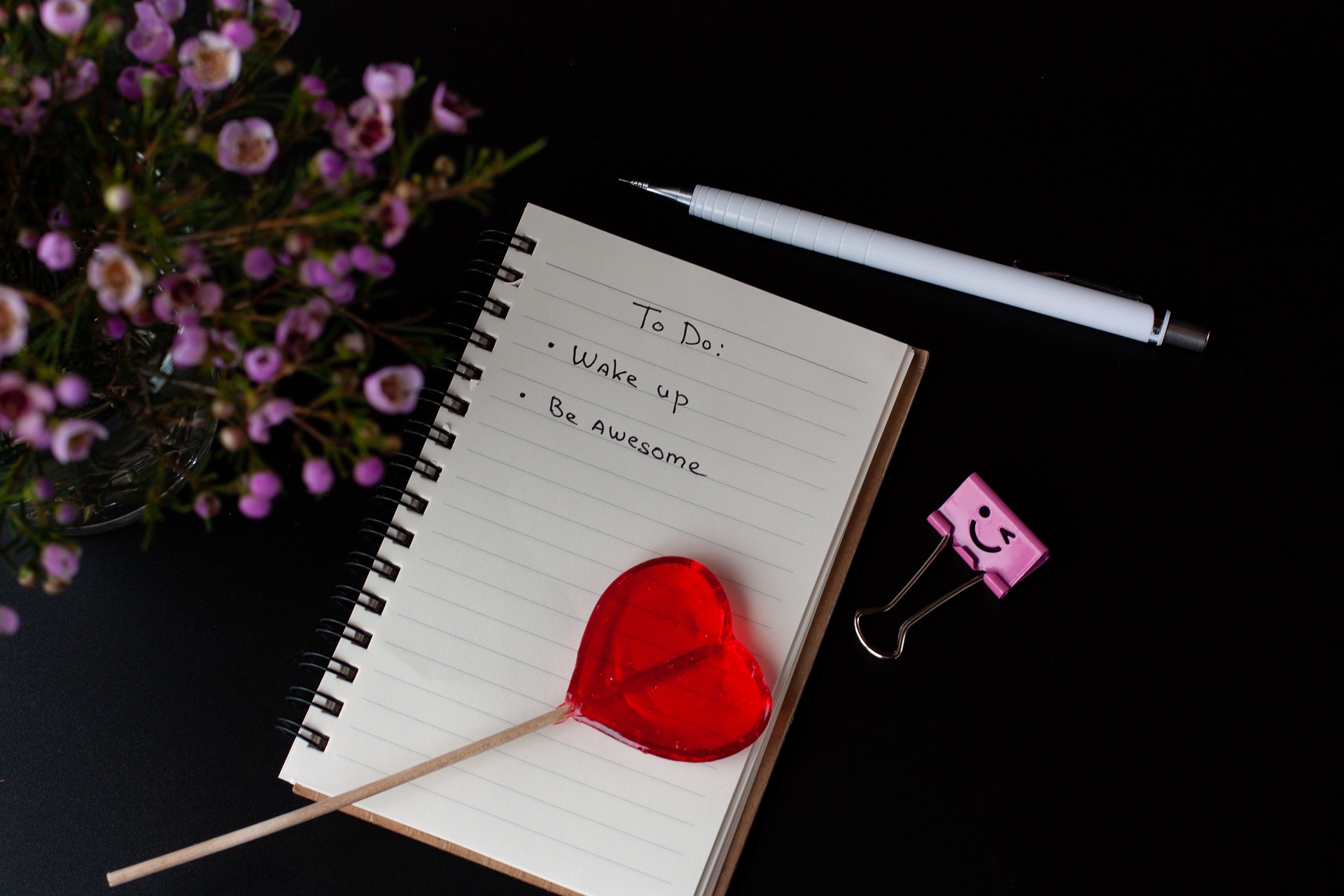Some of you are already pros at working from home but for others, this may be a new thing, and you may be a bit nervous about how to approach it. Or you may worry that you may not be productive working from home because you need the structure the office workplace imposes.
I think for some people working from home is a superpower, while for others it is kryptonite. Some people naturally possess this superpower, but it can also be learned, as it is more mindset than anything else. Let me explain...
Why is working from home a superpower?
I love working from home.
I am very productive because I am away from the distractions of the office and my work phone. My home office is a fantastic working environment for tackling big, complex work challenges (what Cal Newport calls ‘deep work’ — more about that soon). I also find it quite relaxing, and enjoy the flexibility of a working-from-home schedule.
My favourite time of the day to do difficult/deep work is 6am to 9am because this is when I feel really fresh and ready for the challenge. But it is difficult to schedule work for that time of the day when I am going into the office, as it clashes with another critical daily appointment — exercise (which I am good at doing first thing in the morning, but hopeless at doing at the end of the day when I am tired).
So, I am much more productive when working from home (versus office) because I can schedule things for the times in the day I most like to do them, and do my best at them. I usually do 'deep work’ from 6am to 9 am, then other work from 10am to 12 noon and 2pm to 5pm.
I also feel that the quality of my work is better, because I give the tasks at hand more of my attention and creativity, as I am not distracted by the hustle and bustle of work.
How can it become kryptonite?
Some people lose focus on work when they are at home and away from the structure or peer pressure of the workplace — suddenly, cleaning the house or trimming your toenails becomes incredibly urgent and these procrastinations can snowball. I have certainly been guilty of this!
 I don’t know about you, but when this happens for me I get to the end of the day feeling guilty, stressed about the work I didn’t do, and low in self-esteem. Let’s try and avoid this situation, as we all need to stay positive and purposeful in the weeks ahead.
I don’t know about you, but when this happens for me I get to the end of the day feeling guilty, stressed about the work I didn’t do, and low in self-esteem. Let’s try and avoid this situation, as we all need to stay positive and purposeful in the weeks ahead.
Everyone has different strategies for staying productive while working from home. Below I share my pro-tips, in the hope it helps others who are still figuring out their strategies.
Here are my pro-tips:
Set up your home office area so it is easy to work in, and pleasant. For some, a cup of coffee and laptop on a veranda is perfect, while for others, a full work station (desk, chair, monitor, laptop, notepad, pens, plant, power board) may be preferred. It is up to you!
I work in both modes – I have a full workstation for writing and ‘deep work’, but prefer to do tasks like email on the veranda with a coffee and two ultra-cute puppies.
Think carefully about what you need to get done. Since the situation with COVID-19 is uncertain, I suggest planning a week at a time. There are many ways to write a task list and prioritise them. This is what I do:
- I write a list of all the things I need to do (including their deadlines if there are any). Include routine tasks like checking email.
- I then figure out which are the most urgent and important tasks to get done this week (remembering that urgent and important are not always the same!)
- I have another look at this list and determine whether it is actually possible to get these tasks done in the time available in the coming week.

Usually at step 2 I have deemed about 3 weeks of work absolutely necessary to get done this week. If the week’s list is not realistic, go back to step 2. Here it can be worth setting two different goals:
(a) a very achievable 'mission-critical’ goal, and;
(b) a ‘stretch’ goal (in case of a cracking week where nothing unexpected pops up and I have oodles of spare work time to get other things done).
It might be different for you, but I almost never manage to get my stretch goal achieved, as other unexpected things arise during the week and I almost always underestimate how long each task will take.
Make yourself a work schedule, and stick to it. It is really important to structure your day, so that you don’t end up in an endless circle of procrastination, or burning yourself out with too-long working hours.
- Figure out what your working hours for each day will be.
When will you start and finish work, and what pre-existing commitments do you have (e.g. zoom meetings)? When will you take breaks (remember to schedule social breaks, such as virtual coffee breaks with friends or colleagues). Remember to take into account other important non-work activities, such as exercising regularly, cooking, etc.
- Think carefully about how you work best.
When during the day do you feel most fresh, creative, and excited about complex and difficult tasks, and it is easy to ‘get in the zone'?
For most people it is the morning, but night owls prefer the evening. This is the time of your working day that is the most precious. Don’t waste it by using it to answer emails or doing mindless routine tasks. Put it to good use for a difficult or unpleasant task (for example, that task that has been on your list for ever but you keep putting off because you never feel quite up to doing it).
These complex tasks are called ‘deep work’ — all-engrossing work that needs you to be completely focused (e.g. writing a paper, grant or thesis).
 Schedule a 3-4 hour block of your best time each day for 'deep work’. If it is difficult to stay focused for this length of time, start with 1 hour per day and then build up. Commit to yourself that you will use this time really well, and turn off all distractions in this time (Facebook, SMS, Twitter, News ….. and email! I know this is controversial but it is super important). When you are doing ‘deep work’ and become distracted, studies suggest it can take you approximately 20 minutes to get fully back into your productive deep work state.
Schedule a 3-4 hour block of your best time each day for 'deep work’. If it is difficult to stay focused for this length of time, start with 1 hour per day and then build up. Commit to yourself that you will use this time really well, and turn off all distractions in this time (Facebook, SMS, Twitter, News ….. and email! I know this is controversial but it is super important). When you are doing ‘deep work’ and become distracted, studies suggest it can take you approximately 20 minutes to get fully back into your productive deep work state.
- Go back to your to-do list.
Which of those tasks are deep work? Match the deep work tasks on your list to your deep work times in your schedule, to start planning how you will use your week (this is called ‘time boxing’). This will require you to estimate how long each task will take.
- Have a think about when you feel most depleted, unenthused, or tired during your working day (for me I start getting tired around 4pm).
Let’s call this your daily 'low'. This is the best time of your day to use for routine tasks like filling out forms or checking email. For me, it is also a good time to schedule meetings (likely online for the foreseeable future), because talking to people wakes me up again. Schedule these sorts of tasks into your week’s ‘daily low’ time slots.
- Now arrange any other tasks on your to-do list to remaining available work slots.
- Now - this is the tricky part - make a commitment to yourself to stick to your plan, while remaining a little flexible.
Start working when you have scheduled yourself to start working
Stop working when you have scheduled a break or the end of your working day.
If you finish a task earlier than expected, start the next scheduled task or do something from your ‘stretch goal’ list.
Don't forget to schedule social interactions
It is extremely important for our mental health during COVID-19 to ensure we make time for social interactions.
Remember to organise virtual coffee breaks, digital meetings with family and friends, and other forms of communication.
Physical distancing does not mean social isolation!
Let's try and use these weird times to develop excellent time management skills and build up our working-from-home superpower.
Stay safe everyone!

